Our Strategy 2024-27
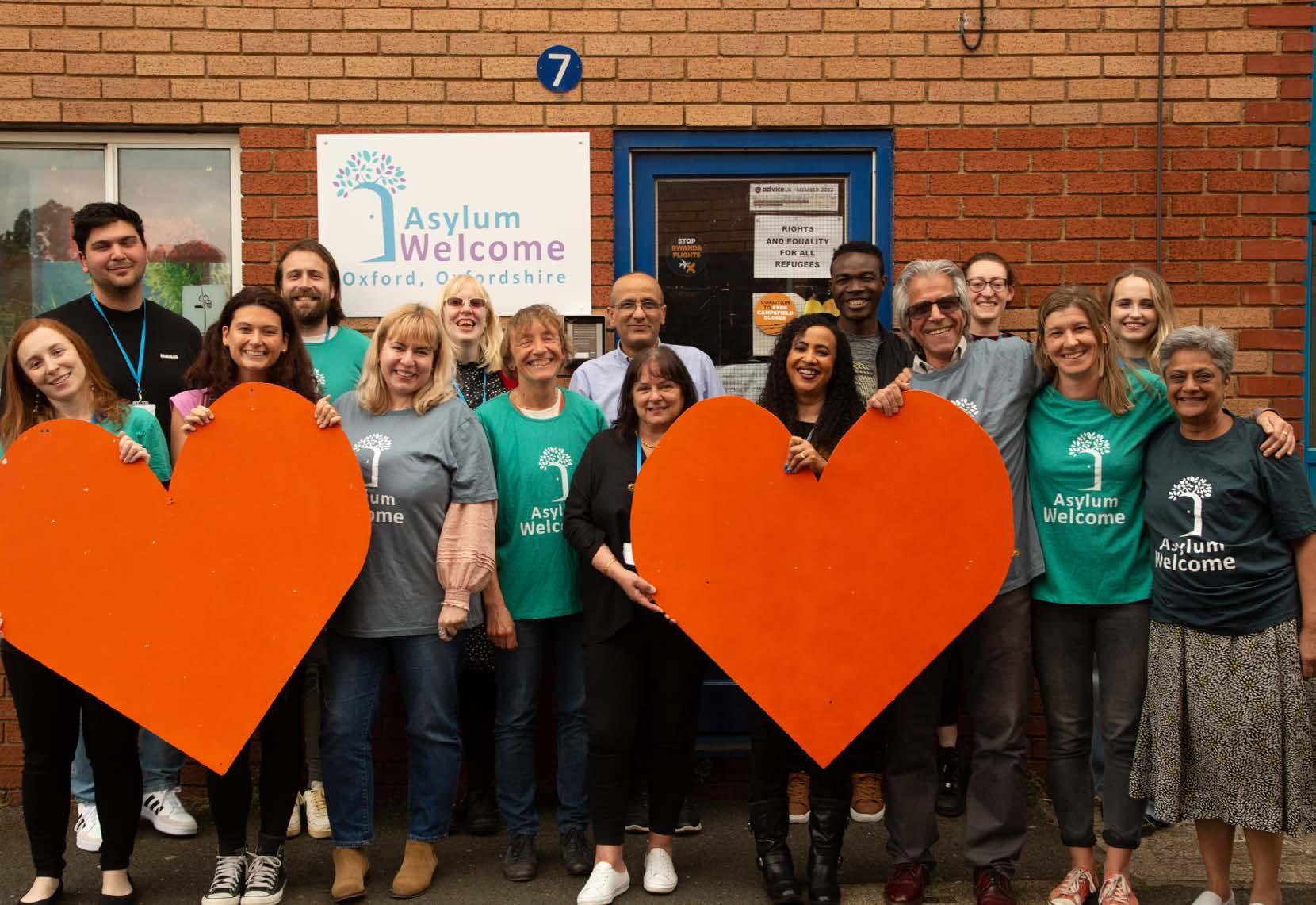
CONTENTS This Framework aims to guide organisational programming, focus and resource allocation, 2024-2027. It will be translated into practice through team plans, organisational policies, annual plans and budgets. About us 4 Context 5 Our clients: asylum seekers, refugees & vulnerable migrants 6 Refining our identity and focus.............................................................................8 Service Development ...............................................................................................9 Organisational strengthening: improving how we work 10 Maximising our impact beyond our own services: partnerships and influence 12 Where will we be in 2027 and how will we use this Framework? ..............13
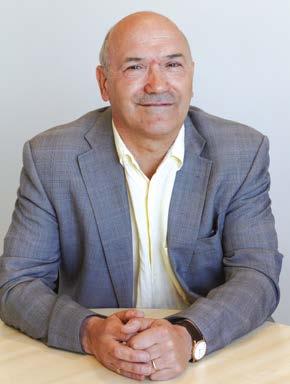
A lot has changed in the political environment for refugees and asylum seekers, internationally, nationally and locally in the last few years.
Asylum Welcome has responded quickly and dynamically to an ever-changing context, always putting the needs of those seeking sanctuary first.
The unpredictability of the environment means that making a detailed long-term plan isn’t very meaningful. But we do need to take stock of where we are and identify priorities and areas for future improvement. This strategy, approved by the board in early 2024 after detailed analysis and consultation, seeks to set our direction for the next three years and provides the framework for more detailed planning and budgeting.
The strategy aims to better balance meeting refugees’ immediate needs, while also strengthening the organisation and maintaining financial stability. We believe that this approach positions us well to meet our clients’ needs both now and in the future.
Mark Goldring CBE Director
“Asylum Welcome helped me personally, I see them offering help, support, and advice to everyone. They gave me a phone which meant I could contact my family; they gave me winter clothes and shoes and they helped me to understand the asylum process and gave me advice. They taught me about the rights I didn’t know I had.”

Ibrahem
3
ABOUT US
Our Vision
Asylum seekers, refugees and vulnerable migrants will feel welcomed, respected, empowered, and included. They will be able to live in dignity, have hope for the future, exercise their rights, have their cases fairly considered, access services to meet their needs, and have opportunities to develop and share their talents.
Our Mission
Asylum Welcome works to alleviate poverty, suffering and isolation among asylum seekers, refugees, and vulnerable migrants in need of humanitarian assistance, who seek refuge in Oxfordshire.
We do this through working collaboratively with people seeking sanctuary, providing services and opportunities, supporting people to access services provided by others, promoting independence, and challenging the policies and practices that undermine people’s rights.
Our Values
: We are all one people – part of a local and global community.
Common humanity
Social justice
We believe in a fair, compassionate and inclusive society that provides rights and opportunities for all people.
Voluntary action
We value volunteers who generously give their time to deliver services, and we seek to make this a rewarding and mutually beneficial experience.
4
CONTEXT
Some key issues that influence our strategy include:
A hostile national and unstable international environment.
A more positive local environment, with generally supportive councils, universities, and communities.
Increased numbers of asylum seekers in local hotels and the community.
Unpredictable demand and arrivals, driven by conflict and climate change, leading more people to feel the need to leave their homes. The potential re-opening of Campsfield detention centre in 2024.
A steady flow of arrivals on resettlement programmes throughout the county. Many local authorities across the country are facing financial struggles.
There are more opportunities to collaborate with other providers of relevant services.
In many cases, we will be the unfunded provider of last resort for clients who cannot access the service they need from others.
Councils are developing their own delivery services, and there is increasing national and local competition for tendered services and contracts.
Relying solely on contract delivery to fund our services is not sustainable, and public charitable giving is under pressure.
Our staff feel stretched and in need of clearer expectations, management support, and resources.
5
OUR CLIENTS:
Refugees, asylum seekers and vulnerable migrants
ASYLUM SEEKERS
We have a distinctive expertise in supporting this particularly vulnerable group, who are excluded from many opportunities and services. This is where the need is greatest, and we make the most significant impact. In developing our work and allocating limited resources, we will prioritise asylum seekers and those transitioning to refugee status.
Our top priority will be to enhance and expand our services specifically aimed at assisting individuals without secure status in navigating the early stages and successfully manoeuvring through a complex and often unwelcoming system, both leading up to and immediately after obtaining refugee status. To achieve this, we will focus on strengthening our initial triage and needs assessment processes, improving our internal and external referral procedures, and fostering partnerships with organisations better equipped to address specific needs. Additionally, we will allocate resources towards enhancing our advice and immigration services, including providing support to asylum seekers as they prepare for their next steps following decision outcomes.
As far as possible, subject to affordability, we will continue to reach out to clients in hotels and the community who are unable to visit our office
We will continue to run services for young people, especially unaccompanied asylum-seeking children in and leaving care, complementing the work of social services. As we have the means to do more to enhance their well-being and inclusion, we will do so.
Meeting the immediate needs of asylum seekers will be the priority for our cross-cutting services, including the Digital Inclusion Project, Sanctuary Wheels, our Hardship Fund, and Food Bank.
6
REFUGEES
Our focus will be on supporting individuals to live independently and flourish in our society. We aim to empower them to take control of their lives and find their own solutions to problems.
To achieve this, we will have a clearer definition of who requires our assistance, the specific actions we can take, and the duration of our support. This will involve increased collaboration with external organisations, particularly in the areas of education and employment.
We will continue bidding for public sector contracts to support resettlement and aid the progression of specific groups (e.g., Afghans and Ukrainians) where we believe we can offer superior services and fully cover our costs. To remain competitive, we will need to be better at describing outcomes, effectively managing costs, and establishing strong partnerships.
VULNERABLE MIGRANTS
We will usually only work with those non-refugee migrants who require immediate support, are least capable of helping themselves, and have urgent protection needs. We will consider working with other vulnerable migrants whose needs relate to their immigration status where specific programmes can be established and funded.
Such programmes are likely to be designed for prisoners, detainees, and individuals with precarious legal status and/or no recourse to public funds. Support may involve providing temporary shelter through our Sanctuary Hosting service.
We will support the wider needs of vulnerable migrants by working with relevant community organisations that include people with displacement backgrounds, but not by providing services ourselves.
CROSS-CUTTING SERVICES
Many of our services assist people from multiple client groups.
Examples of these services include Schools Advocacy, Sanctuary Hosting, youth support, advice services, education, and employment assistance.
As the planned reopening of Campsfield immigration detention centre in 2024 approaches, we will develop a new service to support detained asylum seekers and vulnerable migrants who are at risk of immediate deportation. Responding to this need is at the core of our identity and will be given the highest priority.
7
REFINING OUR IDENTITY AND FOCUS
Scope and scale
Our work will remain focused on Oxfordshire, although we may collaborate with organisations or establish relationships with a wider reach. We do not plan to initiate new projects outside the county. As our client base expands beyond Oxford city, we will explore partnerships and seek suitable locations throughout the county, without the intention of opening new offices. Our goal is not to pursue overall growth. Due to the completion of programmes and the conclusion of commissions, we must be prepared to downsize if necessary.
Being able to partner with or confidently refer clients to other appropriate providers, and helping clients feel empowered to solve their own problems, is more important than extending our own services.
We will continue to prioritise a quick and client-centred response to new arrivals and circumstances.
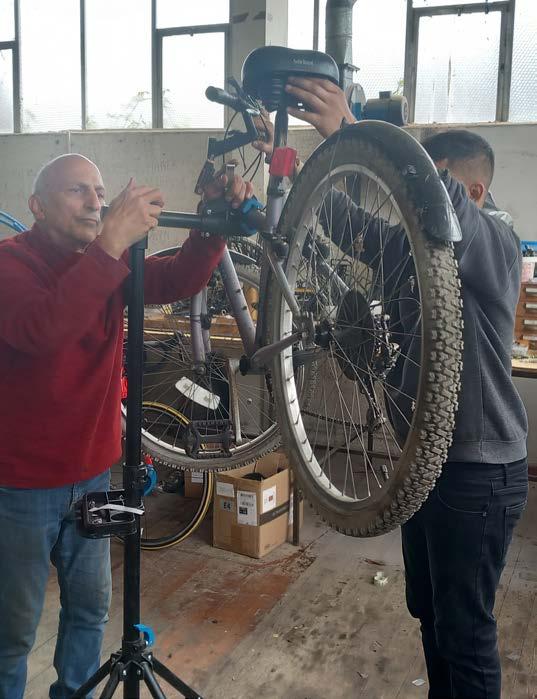
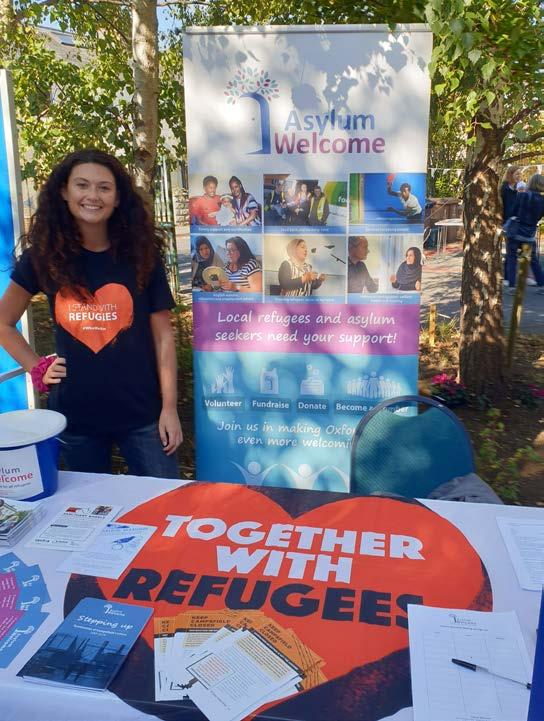

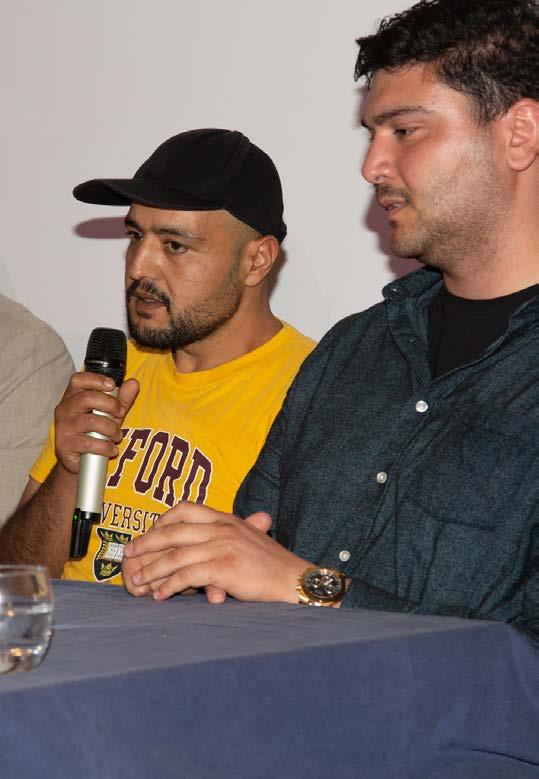
“I got better from the day I saw and talked to you. Asylum Welcome has had a very good impact on
Noah Emad/shutterstock.com (representative photo to protect identity) 8
SERVICE DEVELOPMENT
Enhancing the delivery of existing services
Our primary focus, above introducing anything new, is to enhance the effectiveness of our existing services. In some areas, this means expansion, while in others, it means improvement. There are areas, such as Schools Advocacy, asylum hotel support, and hosting, where we are currently only able to reach a fraction of those who require our assistance. In these areas, we will focus on expanding our efforts where we can.
In general, the improvement of our services involves two main elements:
1) A series of cross-organisational improvements, with the most important ones outlined in the Organisational Strengthening section (see pages 10 and 11).
2) Refining each service while following the guidance provided by this strategy. This includes defining eligibility criteria, enhancing signposting, establishing a more efficient triage system, and improving our reliability.
Each service will be revisiting its scope and eligibility criteria in early 2024, guided by this plan. This will bring clarity as to who we help and how and to whom we refer.
Developing new services
Several areas have been identified as requiring new or improved services.
As we have prioritised the enhancement of existing services, our initial investment will be limited due to budget constraints.

Our first step will involve developing a programme to improve health information, understanding, and accessibility. Fortunately, we have secured start-up funding for this initiative.

We will explore the development of a service focused on migrant women with insecure legal status who are facing domestic abuse.

As funding permits, we will strive to develop social inclusion activities, with a particular focus on young people. Additionally, we will examine ways to provide better support to LGBT+ clients, beginning with selfreflection as an organisation.
9
Dmytro
Khlystan/shutterstock.com
ORGANISATIONAL STRENGTHENING
Improving how we work
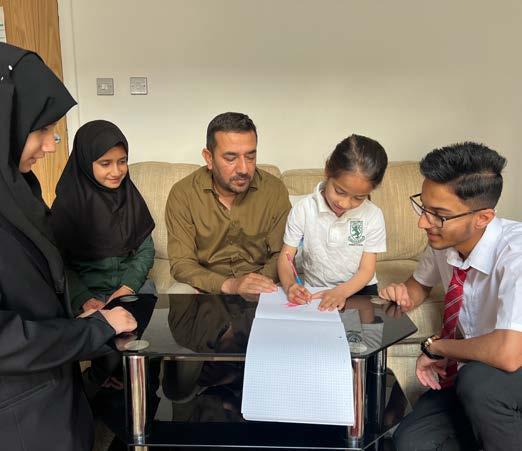
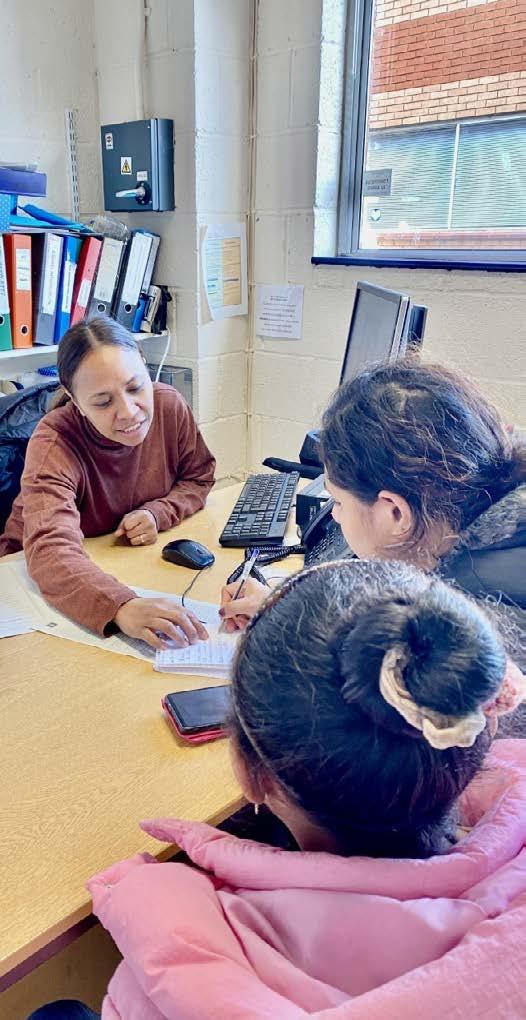
LIVED EXPERIENCE
We are committed to putting clients and individuals with lived experience of displacement and forced migration at the heart of all we do. While our progress has been inconsistent thus far, we are developing a programme that will enhance our effectiveness in this area. This initiative will encompass all levels of our organisation, from governance and management to staffing, volunteering, public engagement, advocacy, and service design.
MANAGEMENT
We are creating new roles for a Co-Director of Services and an Operations Manager, restructuring our advice services, and strengthening teams to meet growing demands from an increasing number of clients and commitments.
TRIAGE SYSTEM
We are creating a new triage service to help get clients the right service or information more quickly and reliably. This will include improving initial information, signposting, and referral.
DATABASE
A consultant is helping us select, purchase, and install a new database in 2024. We will then need to manage the migration to and promote effective use of the new system.
POLICIES, PRACTICE, INFORMATION AND LEARNING
We will improve the way we develop, share, and implement policies, especially those related to monitoring and evaluation, safeguarding, and data management.
10
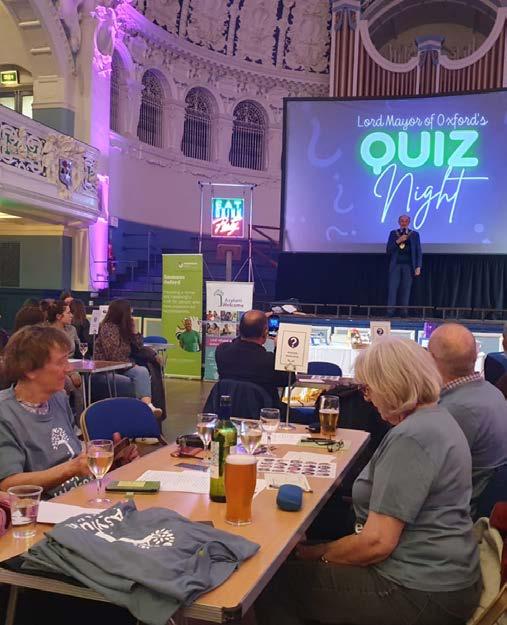
FINANCE, FUNDRAISING & SUSTAINABILITY
We will continue to strive to increase fundraising from our local community, whose support is fundamental to our roots, relationships, and flexibility. Additionally, we aim to secure more support from trusts and foundations. Where aligned with our strategy, we will also pursue public service contracts, seeking to achieve full cost recovery.
PREMISES AND WAYS OF WORKING
Our office is not ideal, but we are committed to existing leases for long periods. We need to make the most of this situation, which involves embracing hybrid working and planning services accordingly. Sometimes we may need to find additional premises for certain events or activities.
WORKING WITH VOLUNTEERS
We recognise that the balance of tasks between staff and volunteers has evolved. Nevertheless, volunteers remain our lifeblood and a significant part of Asylum Welcome’s workforce. We are dedicated to maximising their contribution and ensuring a positive experience for them. We will do this by:
l Enhancing the quality of our relationship with volunteers and improving the reliability of their service, as described in the 2021 volunteering review. It is important to focus on retention rather than solely recruitment.
l Viewing volunteering as an integral part of client journeys.
l Building volunteer language capacity across all our services.
STAFF WELLBEING
Some staff members are currently overstretched. To address this, we are working on improving management structures, providing better support, enhancing staff development opportunities, implementing effective triage systems, and upgrading our infrastructure. Additionally, we will try to use our flexible funding to ensure a balance between workload and staffing.
To promote staff wellbeing and effectively address challenges staff face, we have established a staff advisory group. This group will play a key role in helping the organisation identify and tackle issues that affect our staff.
It is crucial that we improve recruitment, training, development, and progression opportunities for all staff members, particularly those with lived experience. By doing so, we aim to create a better working environment for everyone involved.
“As well as helping me, Asylum Welcome gave me the chance to help other people myself, and I have volunteered in many different fields which helps to reduce stress and concerns about my family back home.”
Jack
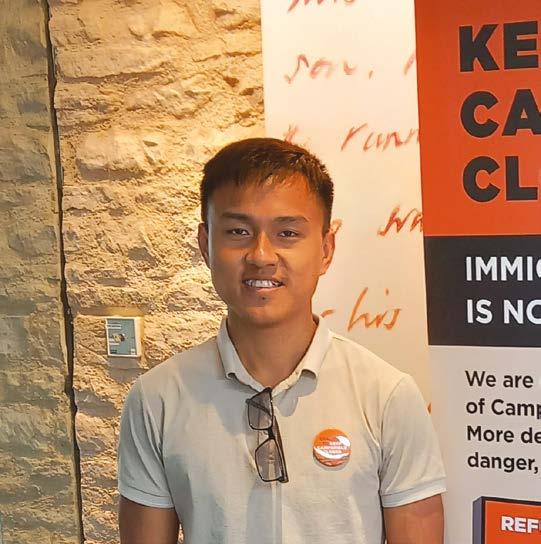
11
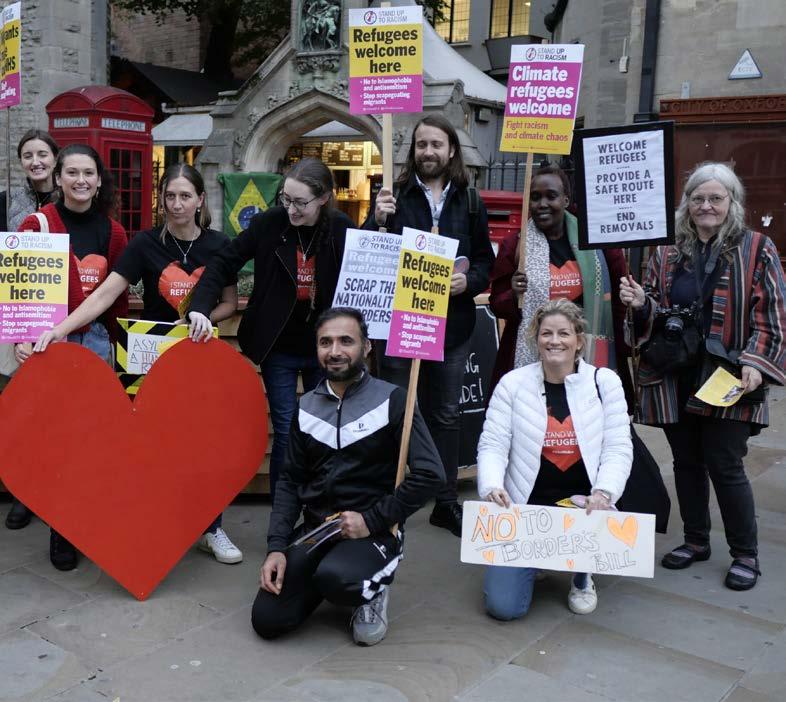

MAXIMISING OUR IMPACT BEYOND OUR OWN SERVICES
Partnerships and influence
As a relatively small, local organisation, we recognise that other entities, such as the government, councils, education, and health services, have the potential to make a greater impact on the lives of refugees than we can on our own.
Therefore, we will actively seek partnerships and strive to influence these entities. It’s important to note that partnership working can take on various meanings depending on the context:
We will collaborate with, inform, and influence local bodies that have the power to make a difference, including challenging them when necessary.
We will collaborate with and support other local providers, including colleges, charities, health providers, and groups that offer valuable services to our clients. We will prioritise facilitating access for our clients and minimise our involvement in areas that others are better equipped to handle. Our new health programme will explicitly follow this approach.
We will actively encourage and provide support to local universities, councils, and other organisations to adopt the appropriate “City/University of Sanctuary” schemes. This helps them address refugee needs within their own institutions and extend their support beyond. There is great potential to foster stronger collaborations based on these relationships, which may include collaborative research that directly benefits our clients.
We will partner in coalition with national organisations on a select few issues where national policy is negatively affecting our clients and where our voice or insights could make a contribution. These issues may include asylum policy, detention, and the right to work.
We will strive to maintain and cultivate support for Oxfordshire as a welcoming place by expanding our supporter base and improving communication with the wider public, especially through clients’ voices.
12 1
3 4 5
2
WHERE WILL BE IN 2027?
And how will we use this Framework?
It is impossible to predict the national or international landscape even a year ahead. Setting targets in terms of numbers or income would be futile. While the need for our services is unlikely to decrease, we may not always be able to meet this demand through expansion.
What we can do is ensure that we remain ambitious in making a difference for our clients while also being financially stable, well-organised, and effective.
We will achieve this by building our capacity and enhancing the quality of our work and relationships, both internally and externally. Most importantly, we will always prioritise our clients’ interests in every decision we make.
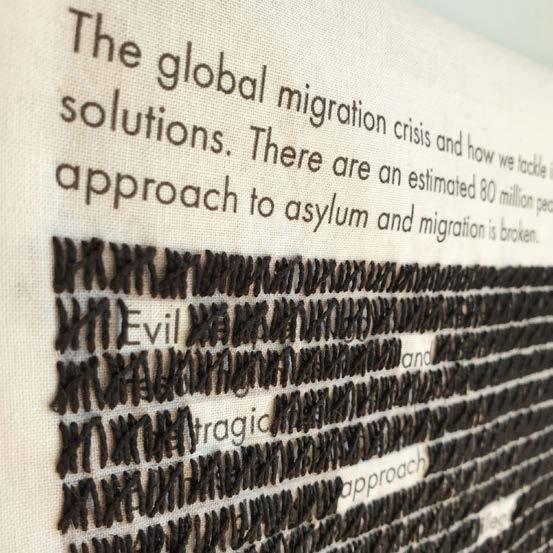
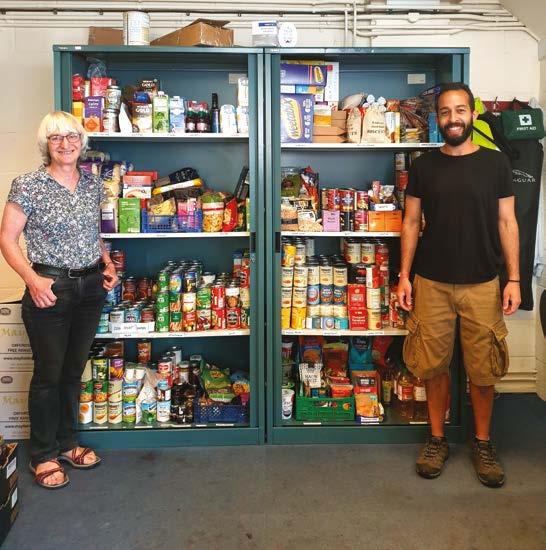
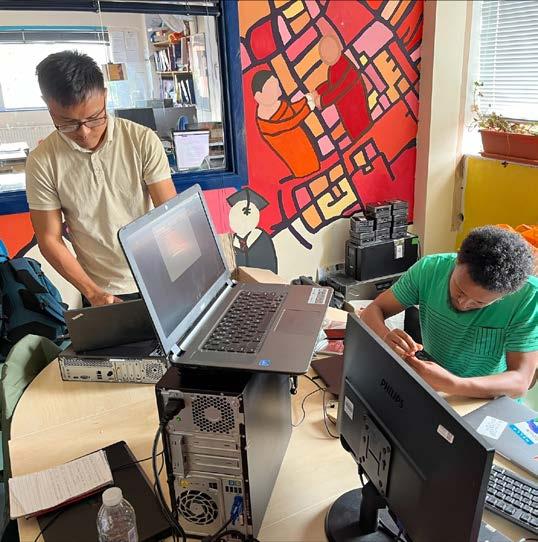
“At the age of 62, we had lost everything: our home, business, loved ones, books and all other personal items which made our world happy and fulfilled. Asylum Welcome’s support was timely and necessary, a lifeline for us. Their team helped us to integrate into the UK and solved many important issues. Organisations like Asylum Welcome are essential for the world because they make it kinder and more beautiful.”
Olena and Oleg
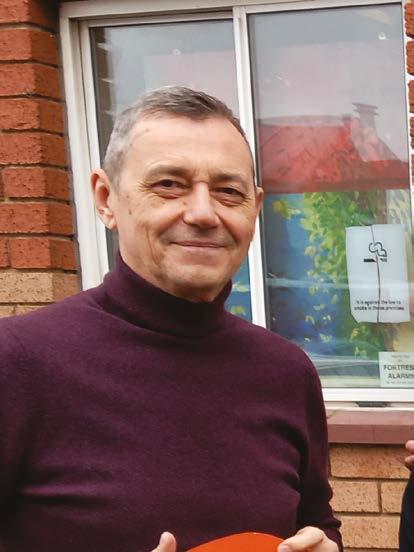
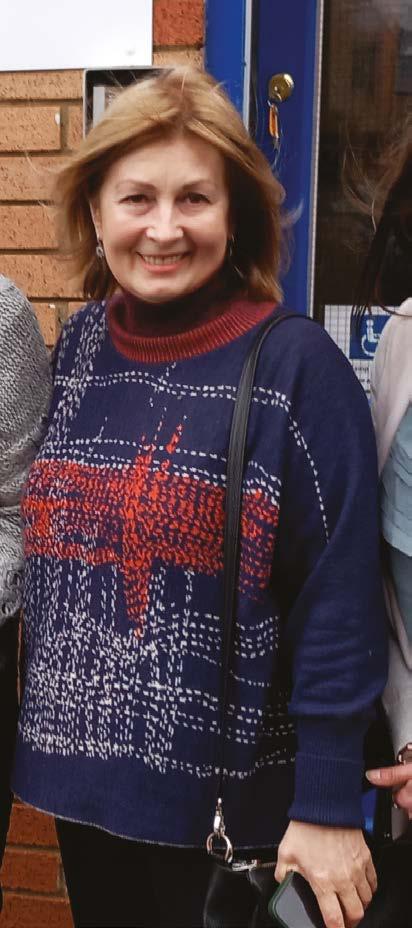
13


www.asylum-welcome.org Asylum Welcome is a registered charity, number 1092265, and company, number 4361627. Asylum Welcome, Unit 7, Newtec Place, Magdalen Road, Oxford, OX4 1RE 01865 722082 • welcome@asylum–welcome.org @AsylumWelcome HOW YOU CAN HELP TODAY As a charity, Asylum Welcome relies on fundraising and donations to sustain our work. We are immensely grateful for the unwavering support of our local community, members, supporters, and donors. MAKE A DONATION asylum-welcome.org/donate VOLUNTEER WITH US asylum-welcome.org/volunteer JOIN OUR MAILING LIST AND BECOME A MEMBER asylum-welcome.org/membership FOLLOW US ON SOCIAL MEDIA @AsylumWelcome GET IN TOUCH welcome@asylum-welcome.org























